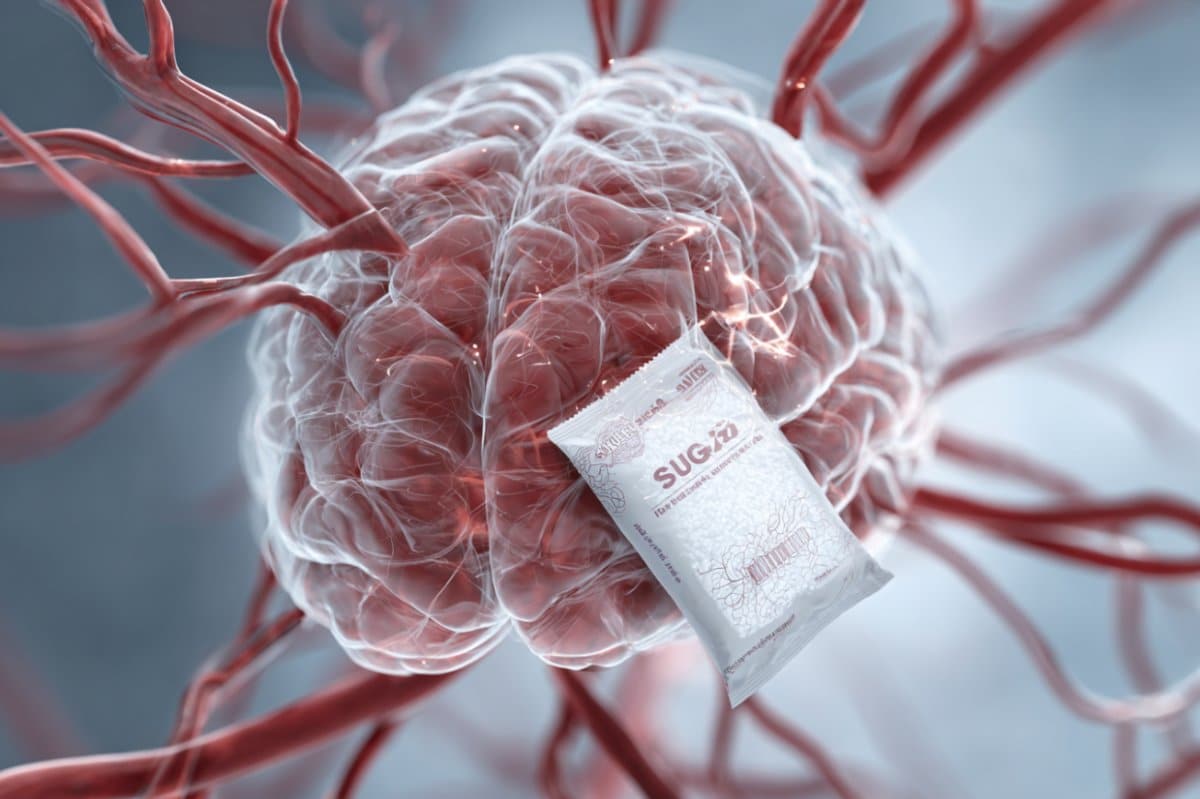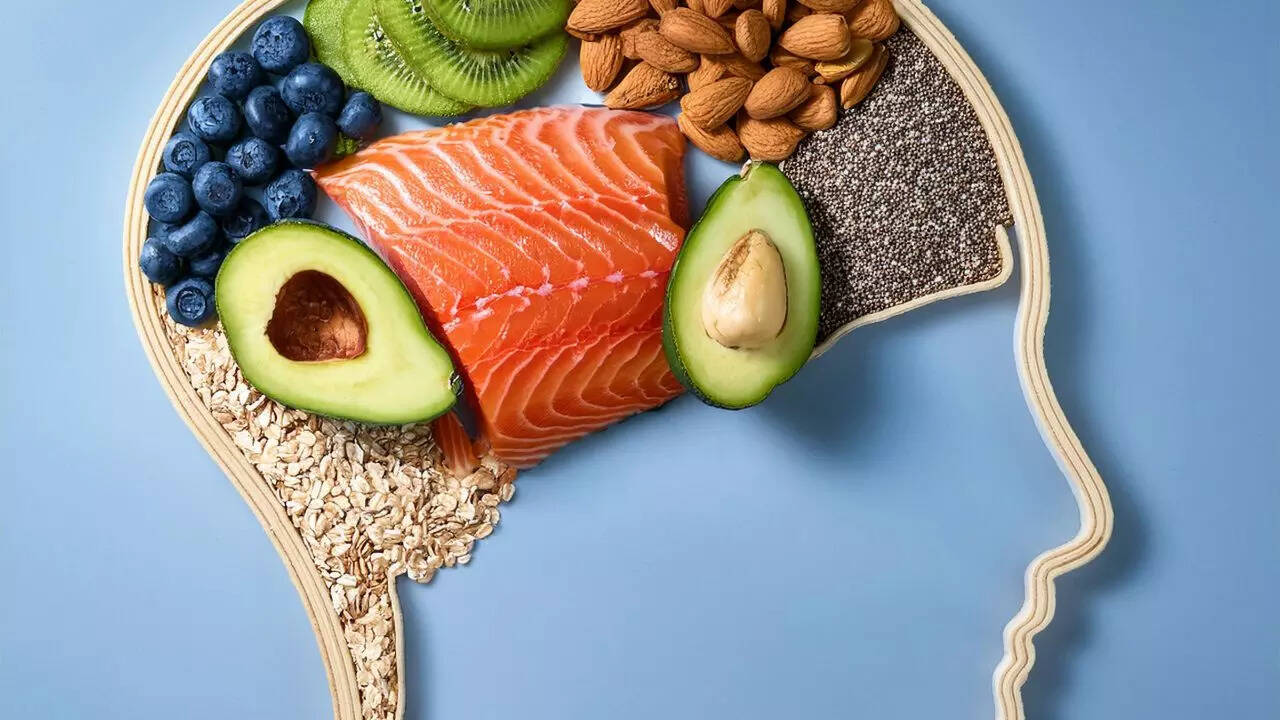Summary: A common sugar substitute, erythritol, widely used in “sugar-free” and low-carb products, may increase stroke risk by damaging brain blood vessel cells. A new study found that erythritol exposure reduced nitric oxide, increased vessel constrictors, impaired clot-busting abilities, and boosted free radical production in these cells.
These changes create a higher risk environment for clotting and reduced blood flow to the brain. Researchers caution that while the study was conducted in cells, it adds to growing evidence of erythritol’s potential health harms.
Key facts:
- Erythritol exposure made brain blood vessel cells more constricted and prone to clotting.
- Free radical production increased, while protective clot-busting compounds decreased.
- Even typical serving sizes of erythritol could have measurable cellular effects.
Source: University of Colorado
From low-carb ice cream to keto protein bars to “sugar-free” soda, the decades-old sweetener erythritol is everywhere.
But new University of Colorado Boulder research shows the popular sugar substitute and specialty food additive comes with serious downsides, impacting brain cells in numerous ways that can boost risk of stroke.

The study was published in the Journal of Applied Physiology.
“Our study adds to the evidence suggesting that non-nutritive sweeteners that have generally been purported to be safe, may not come without negative health consequences,” said senior author Christopher DeSouza, professor of integrative physiology and director of the Integrative Vascular Biology Lab.
First approved by the Food and Drug Administration in 2001, erythritol is a sugar alcohol, often produced by fermenting corn and found in hundreds of products. It has almost no calories, is about 80% as sweet as table sugar, and has negligible impact on insulin levels, making it a favorite for people trying to lose weight, keep their blood sugar in check or avoid carbohydrates.
But recent research has begun to shed light on its risks.
One recent study involving 4,000 people in the U.S. and Europe found that men and women with higher circulating levels of erythritol were significantly more likely to have a heart attack or stroke within the next three years.
DeSouza and first author Auburn Berry, a graduate student in his lab, set out to understand what might be driving that increased risk.
Researchers in the lab treated human cells that line blood vessels in the brain for three hours with about the same amount of erythritol contained in a typical sugar-free beverage.
They observed that the treated cells were altered in numerous ways: They expressed significantly less nitric oxide, a molecule that relaxes and widens blood vessels, and more endothelin-1, a protein that constricts blood vessels.
Meanwhile, when challenged with a clot-forming compound called thrombin, cellular production of the natural clot-busting compound t-PA was “markedly blunted.” The erythritol-treated cells also produced more reactive oxygen species (ROS), a.k.a. “free radicals,” metabolic byproducts which can age and damage cells and inflame tissue.
“Big picture, if your vessels are more constricted and your ability to break down blood clots is lowered, your risk of stroke goes up,” said Berry. “Our research demonstrates not only that, but how erythritol has the potential to increase stroke risk.”
DeSouza notes that their study used only a serving-size worth of the sugar substitute. For those who consume multiple servings per day, the impact, presumably, could be worse.
The authors caution that their study was a laboratory study, conducted on cells, and larger studies in people are needed.
That said, De Souza encourages consumers to read labels, looking for erythritol or “sugar alcohol” on the label.
“Given the epidemiological study that inspired our work, and now our cellular findings, we believe it would be prudent for people to monitor their consumption of non-nutrient-sweeteners such as this one,” he said.
About this diet and neurology research news
Author: Lisa Marshall
Source: University of Colorado
Contact: Lisa Marshall – University of Colorado
Image: The image is credited to Neuroscience News
Original Research: Open access.
“The non-nutritive sweetener erythritol adversely affects brain microvascular endothelial cell function” by Auburn Berry et al. Journal of Applied Physiology
Abstract
The non-nutritive sweetener erythritol adversely affects brain microvascular endothelial cell function
The experimental aim of this study was to determine, in vitro, the effect of the non-nutritive sweetener erythritol on brain microvascular endothelial cell oxidative stress, nitric oxide (NO) and endothelin (ET)-1 production, as well as tissue-type plasminogen activator (t-PA) release.
Human cerebral microvascular endothelial cells (hCMECs) were cultured and treated with 6 mM erythritol, equivalent to a typical amount of erythritol (30 g) in an artificially sweetened beverage, for 3 h.
Intracellular reactive oxygen species (ROS) production was significantly higher in hCMECs treated with erythritol (204 ± 32% vs. 105 ± 4%) as well as the expression of antioxidant proteins, superoxide dismutase-1 [332.1 ± 16.2 vs. 214.9 ± 4.7 arbitrary units (AU); P = 0.002] and catalase (30.9 ± 0.3 vs. 24.4 ± 0.9 AU; P = 0.002).
Although endothelial nitric oxide synthase (eNOS) expression was not significantly altered (102.8 ± 21.4 vs. 99.0 ± 19.9 AU); the expression of p-eNOS (Ser1177) was lower (52.1 ± 2.1 vs. 77.3 ± 9.1 AU; P < 0.001), and p-eNOS (Thr495) was higher (63.4 ± 8.0 vs. 45.6 ± 6.9 AU; P = 0.006) in hCMECs treated with erythritol.
Cell expression of Big ET-1 was also higher in erythritol-treated cells (56.4 ± 9.8 vs. 40.9 ± 6.5 AU; P = 0.02). Consequently, the endothelial NO production was significantly lower (5.8 ± 0.8 vs. 7.3 ± 0.7 µmol/L) and ET-1 production was significantly higher (34.6 ± 2.3 vs. 26.9 ± 1.5 pg/mL) in response to erythritol.
t-PA release in response to thrombin was significantly blunted in erythritol-treated (from 87.4 ± 6.3 to 87.6 ± 8.3 pg/mL) versus untreated (90.1 ± 5.5 to 110.2 ± 6.4 pg/mL) hCMECs. In summary, erythritol adversely affects oxidative stress, NO production, ET-1 production, and t-PA release in brain microvascular endothelial cells, potentially contributing to the increased risk of ischemic stroke associated with erythritol.
NEW & NOTEWORTHY
Erythritol, a common non-nutritive sweetener, is associated with increased risk of cardiovascular and cerebrovascular events.
This study provides novel data, demonstrating that erythritol (at a concentration typically contained in a standard-size commercially available artificially sweetened beverage) adversely affects brain microvascular endothelial cell oxidative stress, eNOS activation and NO production, ET-1 expression, and t-PA release in vitro.
Source link

